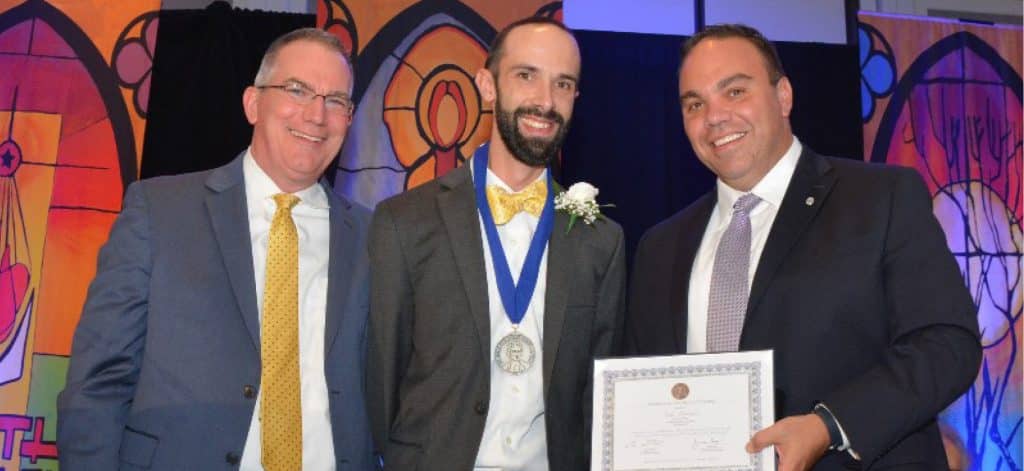1. Can you share a little about your educational background and where you are currently teaching?
I grew up in the small town of Watkins Glen on the south end of Seneca Lake in the heart of the Finger Lakes region. I always had a passion for being outdoors, growing up in the country fishing, hunting, hiking, biking, and camping. I learned fairly young that I really liked teaching earth science. I went to a community college in Corning and then transferred to Cornell University for my undergraduate degree in the Science of Earth Systems program, with a primary focus on geology. I minored in education and then completed another year at Cornell to receive my master’s degree in teaching.
I started teaching at Christian Brothers Academy in 2010. It has been my only job in education. I started with seventh grade physical science and then moved into earth science for ninth grade, which was my primary ambition in teaching. I’ve since developed an elective for juniors and seniors to further their interest in the fields of astronomy and meteorology. I’ve always felt that CBA was where God wanted me to be, I’ve felt the calling since day one, and I really can’t see myself teaching in any other environment. It is a place that beautifully balances a quality education with an intention of making young men and women moral and responsible members of society. It’s a philosophy of which I’m proud to be a part.
2. How do you get your students excited about science?
I’ve always found that science is not exciting unless it’s hands-on. The beautiful thing about earth science is the fact that it is not abstract; it’s all around you! With that in mind, I’ve always tried to find ways to make the lessons real through hands-on labs and exploration. I built a stream table for the classroom to demonstrate stream evolution and change. I’ve brought kids on hikes on the school property to calculate the gradient of the topography of the area, while demonstrating the various skills of orienteering. I’ve hosted star watch parties on campus in the evenings to locate planets and constellations and look through telescopes.
I’ve also found that you can build rapport with your students by being real with them. Meet them at their level, and stay in tune with their likes, sayings, achievements, and successes. Having an approachable attitude is important in all areas of education. It helps make science more enjoyable when the teacher is more enjoyable!
3. You are a VEX Robotics Coach. Can you share what that is and what you and your team do?
In 2011, I and a colleague of mine (Mr. Griffin Harmon) started a ground-up robotics program with First Lego League for seventh and eighth-grade students. We had our share of successes and a lot of interest in the program and decided to extend it into the higher grade levels by building a VEX Robotics program in 2015. Thanks to generous donations from various individuals, we’ve been able to fund the program through the years.
Robotics has really been a blast! The kids have a lot of fun competing, though locally we’re up against some really tough competition. The VEX robotics program is a worldwide robotics competition in which students design, build, program, and compete with other robots on a 12’x12′ field with elements that change each year. This current year consists of robots trying to scoop up discs and score them in a miniature version of a disc golf cage. The competition consists of a 15-second autonomous period that is strictly limited to a program designed by the students, and they finish it off with a minute and 45 seconds of driver control.
I’ve really enjoyed the robotics program because it gives me a chance to be a kid again, while at the same time building some special relationships with kids that are really interested in the engineering field. It’s been great seeing these kids progress in their future college careers.
4. Last year you were named the District of Eastern North America Lasallian Educator of the Year. Congratulations! What did that honor mean to you?
The Lasallian Educator of the Year award was a true honor as you indicated. I was a bit stunned and disbelieving when I was first told about it. I’ve always felt that I’ve tried to just be the best teacher I can be, and I don’t feel like I’m doing anything necessarily special to be given this level of recognition. I give credit to the support I have around me, especially my wife, who has always been by my side while raising our three kids. I’m grateful for the opportunities I’ve had to be able to touch hearts and minds, and hopefully I’ve made an impact on them to better themselves in some way.

Check out the full March issue below!



